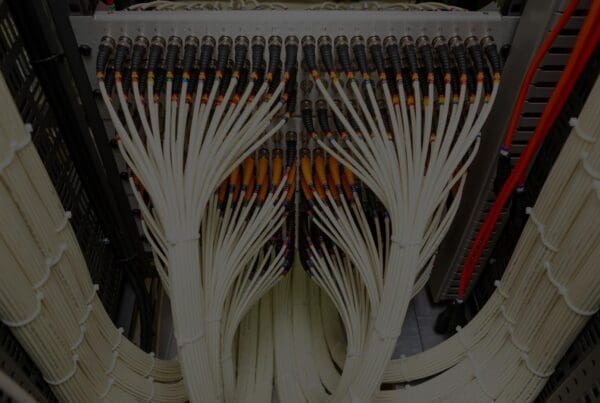In the dynamic world of IT and telecoms, the discussion around a data cabling engineer’s salary often takes center stage. As companies grapple with the rapid advances in technology and the ever-increasing demand for specialised skills, the importance of offering competitive salaries has never been more pronounced. A fair and enticing data cabling engineer’s salary isn’t just a number on a paycheck; it’s a reflection of a professional’s worth, experience, and the value they bring to an organisation.
The conversation around data cabling engineer salary isn’t just about compensation, either. It plays a pivotal role in both attracting new talent and retaining seasoned professionals. In a sector where expertise can greatly influence project outcomes, the allure of a competitive salary can be the difference between securing top-tier talent and missing out on potential industry leaders
As the quest for innovation continues, the data-cabling engineer salary emerges as a key player in the hiring game, setting the stage for a company’s future successes and the trajectory of professionals in the field. With this in mind, it’s essential for businesses and professionals alike to understand the nuances and implications of the data-cabling engineer salary in today’s market.
The Current State of Data Cabling Engineer Salaries

In the competitive world of IT and telecoms, understanding the prevailing market rates is crucial for both employers and professionals. The data cabling engineer’s salary serves as a yardstick, reflecting the current demands and trends of the industry.
A. Presenting the Average Data:
In the UK, the average salary for a data cabling engineer is £37,500 annually, before overtime which can add another £7,000-10,000. Contractors typically earn around £1,000 per week, although the average stands at £850 per week.
B. Salary Spectrum:
Of course, like any profession, the data cabling engineer’s salary varies based on experience, skills, and other contributing factors. Those just embarking on their careers in this domain can anticipate an entry-level salary of around £32,000. On the other end of the spectrum, seasoned data cabling engineers with a wealth of experience and a proven track record can command salaries reaching up to £41,600-48,000.
This spectrum showcases the potential growth and earning capacity within the industry, further emphasising the importance of the data cabling engineer’s salary in the broader context of the IT and telecom sectors.
The Importance of Staying Competitive
In an era where technological advancements occur at a dizzying pace, the IT and telecom sectors find themselves in a relentless “war for talent.” The brightest minds are always in high demand, and organisations are often vying for the same pool of professionals.
A. The War for Talent:
The IT and telecom domains are particularly competitive, with companies constantly seeking experts who can navigate the challenges of the modern tech landscape. In such a scenario, the data cabling engineer’s salary becomes a distinguishing factor. When candidates are presented with multiple, seemingly similar job offers, a competitive data cabling engineer’s salary can tilt the balance in a company’s favour. Offering a compelling salary not only signals the company’s recognition of a candidate’s worth but also its commitment to rewarding excellence.
B. Employee Retention:
Beyond the initial hiring phase, a competitive data-cabling engineer’s salary plays an integral role in employee retention. High turnover rates can be detrimental to a company, leading to increased recruitment costs, loss of institutional knowledge, and potential disruptions in ongoing projects. By ensuring that the data cabling engineer’s salary is in line with, or even exceeds industry standards, companies can boost overall job satisfaction. Content employees, feeling valued and fairly compensated, are less likely to seek “greener pastures” elsewhere, ensuring continuity and consistency in the company’s operations.
Staying competitive in terms of the data cabling engineer salary isn’t just a recruitment strategy; it’s an investment in the company’s future and a commitment to its most valuable assets – its employees.
Long-Term Impacts on Business Success

A company’s success isn’t just measured by its quarterly results but by its sustained performance over the long haul. Two significant factors influencing this long-term success in the IT and telecom sector are the quality of work produced and the company’s reputation in the marketplace. At the heart of both these elements is the data cabling engineer’s salary.
A. Quality of Work:
When a company offers an attractive data cabling engineer salary, it sends a clear message: we value expertise and are willing to reward it. This often results in the attraction of highly qualified and dedicated professionals who are not just looking for a job, but a platform where their skills are recognized and appreciated. Moreover, fair and competitive compensation directly contributes to employee satisfaction. When employees feel that they are adequately compensated, their motivation, dedication, and overall quality of work tend to rise. In the context of a data cabling engineer’s salary, this translates to better-designed systems, more efficient installations, and innovative solutions to complex problems.
B. Business Reputation:
A company’s reputation is one of its most invaluable assets. When businesses offer competitive data cabling engineer salaries, they’re not just investing in their employees; they’re also bolstering their reputation in the industry. Such companies are often viewed as industry leaders who value and invest in talent. This positive perception, in turn, facilitates a virtuous cycle. A sterling reputation makes it easier to attract the next generation of talent and can also positively influence potential clients and partners, who prefer associating with firms known for their excellence and employee welfare. In essence, a competitive data cabling engineer’s salary can be a cornerstone of a company’s brand image, leading to sustained business growth and success.
The long-term impacts of offering a competitive data cabling engineer salary reverberate beyond individual employees, influencing a company’s overall quality of work and standing in the marketplace. It’s an investment with compounding returns, shaping the trajectory of a business in an ever-competitive landscape.
Conclusion

In the ever-evolving IT and telecoms landscape, both companies and professionals must remain adaptive. Businesses need to consistently revisit and recalibrate their data-cabling engineer salary offerings to stay competitive. Meanwhile, professionals should stay informed about their market worth.
By actively addressing the data-cabling engineer salary, companies not only attract top talent but also foster innovation, while professionals ensure their skills and contributions are duly recognised and compensated.



